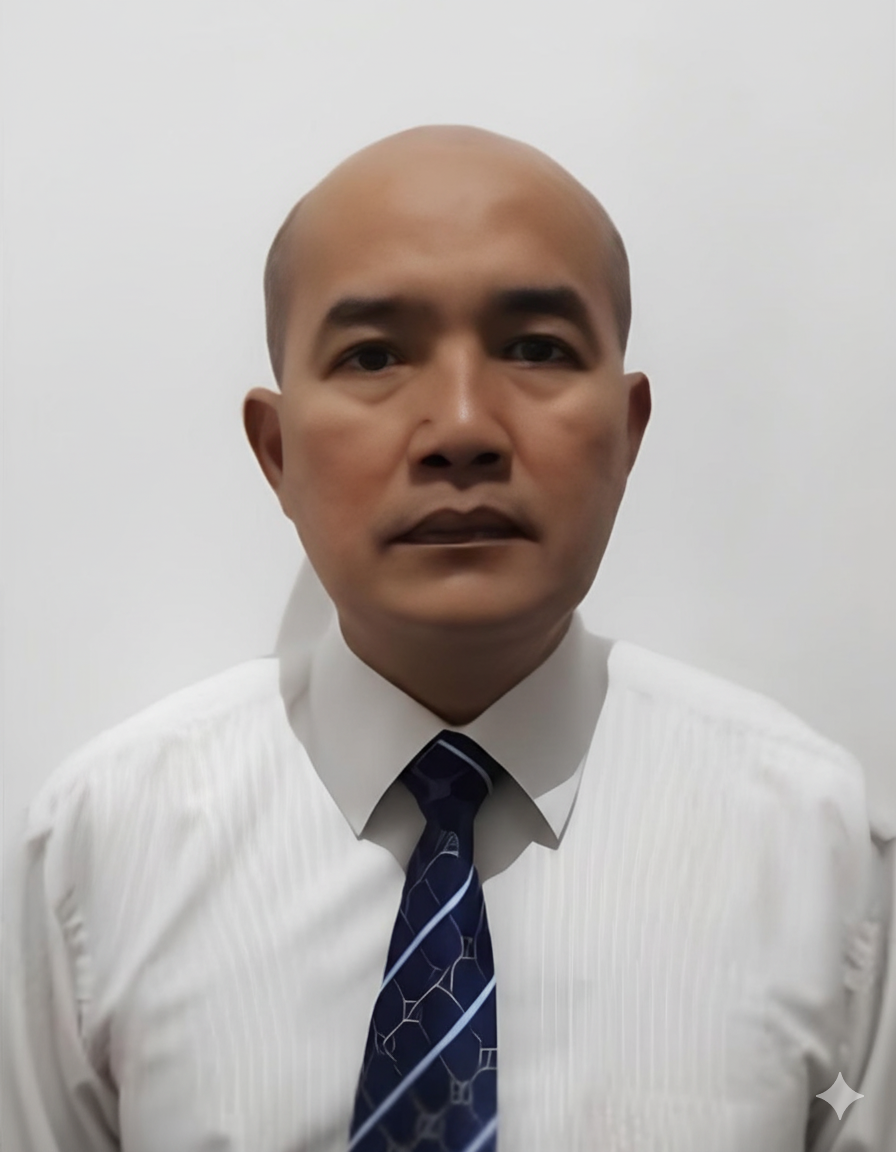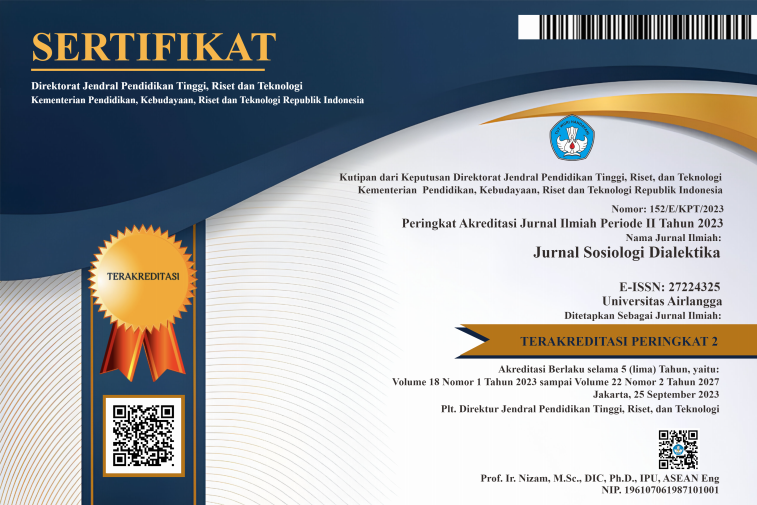“Political engineering”: Continuity and novelty in political theory
Downloads
This article discusses the development of the study of “political engineering” and the theoretical discourse used to formulate the continuity and novelty of future studies. It begins by identifying previous studies that serve as the theoretical foundation, and a literature review method is employed to identify the similarities and differences among existing studies, which are then used to formulate new conceptions. The findings indicate that the perspective of “political engineering” has a strong basis and foundation to be developed as a major field of study in Political Science. This is not only due to the variety and development of studies in recent decades, but also because the needs for political science to transform into applicable, practical knowledge capable of addressing contemporary challenges are increasingly urgent. The conception of “new political engineering” focuses on behavior engineering, using psychological mechanisms referred to as hope and fear, directly targeting actors (with or through institutions) and no longer making political institutions the main object of study. Instead, it extends to campaign messages, marketing management, system functions, political institutions, policy products, and policymakers to explain and direct voter behavior.
Ahmed A (2013) Democracy and The Politics of Electoral System Choice: Engineering Electoral Dominance. New York: Cambridge University Press. https://doi.org/10.1017/CBO9781139382137.
Andeweg RB (2000) Consociational democracy. Annual Review of Political Science 3 (1): 509-536.
Ardèvol-Abreu A, Costa-Sánchez C, & Delponti P (2024) Can information literacy increase political accountability? Linking information evaluation with obstinate partisanship via social media political homophily. Journal of Information Technology & Politics 21 (2):104-116. https://doi.org/10.1080/19331681.2023.2173699.
Brändle VK, Galpin C, & Trenz HJ (2021) Brexit as ‘politics of division’: Social media campaigning after the referendum. Social Movement Studies 21 (1-2):234-253. https://doi.org/10.1080/14742837.2021.1928484.
Costa BF (2021) Donald Trump’s political communication on facebook-an analysis of the pre-election period (2020). JANUS. NET e-journal of International Relations. Thematic dossier: International Relations and Social Networks 112-129. https://doi.org/10.26619/1647-7251.DT21.8.
Forsberg L (2018) Xenophobic responses on social media: the case of Donald Trump : Political communication and xenophobia on social media. Digitala Vetenskapliga Arkivet. https://api.semanticscholar.org/CorpusID:158718582.
Fraenkel J (2015) ‘Equality of rights for every civilised man South of the Zambezi’: Electoral engineering in Southern Rhodesia 1957-1965. Journal of Southern African Studies 41 (6). https://doi.org/10.1080/03057070.2015.1116231.
Gillies J (2018) The US Presidential Race: Advances and insights for political marketing practice. In: Gillies J (ed). Political Marketing in the 2016 U.S. Presidential Election. Palgrave Studies in Political Marketing and Management. Cham: Palgrave Macmillan. 113-119. https://doi.org/10.1007/978-3-319-59345-6_8.
Green J & McElwee S (2019) The differential effects of economic conditions and racial attitudes in the election of Donald Trump. Perspectives on Politics 17 (2). https://doi.org/10.1017/S1537592718003365.
Kuckartz U (2019) Qualitative text analysis: A systematic approach. Compendium for early career researchers in mathematics education, 181-197. https://doi.org/10.1007/978-3-030-15636-7_8
Lilleker DG & Koc-Michalska K (2017) What drives political participation? Motivations and mobilization in a digital age. Political Communication 34 (1):21-43. https://doi.org/10.1080/10584609.2016.1225235.
MacIntyre A (2018) The Power of Institutions: Political Architecture and Governance. The power of institutions: Political architecture and governance. Ithaca and London: Cornell University Press.
MacIntyre A (2001) Institutions and Investors: The Politics of the Economic Crisis in Southeast Asia. International Organization 55 (1):81-122. https://doi.org/10.1162/002081801551423.
Marshall H & Drieschova A (2018) Post-Truth Politics in the UK’s Brexit Referendum. New Perspectives 26: 105-189. https://api.semanticscholar.org/CorpusID:159281391.
Morini M (2020) Lessons from Trump’s Political Communication: How to dominate the media environment. Cham: Palgrave Pivot Cham. https://doi.org/10.1007/978-3-030-39010-5.
Norris P (2004) Electoral engineering: Voting rules and political behavior. In: Electoral Engineering: Voting Rules and Political Behavior. https://doi.org/10.1017/CBO9780511790980.
Pérez-Curiel C & Limón-Naharro P (1970) Political influencers. A study of Donald Trump’s personal brand on Twitter and its impact on the media and users. Communication & Society, 57–75. https://doi.org/10.15581/003.32.37815.
Pich C, Harvey J, Armannsdottir G, Poorrezaei M, Branco-Illodo I, & Kincaid A (2018) Marketing brexit: An exploratory study of young voter engagement in relation to the EU referendum. International Journal of Market Research 60 (6). https://doi.org/10.1177/1470785318793260.
Prasad K (2015) Identity politics and elections in Malaysia and Indonesia: Ethnic engineering in Borneo. London: Routledge. https://doi.org/10.4324/9781315720876.
Regalia M (2018) Electoral Reform as an Engine of Party System Change in Italy. South European Society and Politics 23 (1). https://doi.org/10.1080/13608746.2018.1432245.
Reilly B (2002) Political engineering and party politics in Papua New Guinea. Party Politics 8 (6). https://doi.org/10.1177/1354068802008006004.
Rodrigues U (2020) Political communication on social media platforms. In: Global Transformations in Media and Communication Research. https://doi.org/10.1007/978-3-030-44563-8_11.
Salih MAM (2005) African Parliaments: Between Governance and Government. New York: Palgrave Macmillan. https://doi.org/10.1057/9781403979308.
Sartori G (1989) Undercomprehension. Government and Opposition 24 (4):391-400. https://doi.org/10.1111/J.1477-7053.1989.TB00731.X.
Sartori G (1997) Comparative constitutional engineering. In: Comparative Constitutional Engineering. https://doi.org/10.1007/978-1-349-25217-6.
Shook NJ, Fitzgerald HN, Boggs ST, Ford CG, Hopkins PD, & Silva NM (2020) Sexism, racism, and nationalism: Factors associated with the 2016 U.S. Presidential election results? PLoS ONE 15 (3). https://doi.org/10.1371/journal.pone.0229432.
Sinha S (2017) Fragile hegemony: Modi, social media, and competitive electoral populism in India. International Journal of Communication 11: 23.
Solo AMG (2018) An overview of the new interdisciplinary fields of political engineering and computational politics for the next frontier in politics. Proceedings - 2017 International Conference on Computational Science and Computational Intelligence, CSCI 2017. https://doi.org/10.1109/CSCI.2017.319.
Zhang K (2018) Book review: Talking Donald Trump: A sociolinguistic study of style, metadiscourse, and political identity by Jennifer Sclafani. Journalism & Mass Communication Quarterly 95 (4):1180-1182. https://doi.org/10.1177/1077699018796666.

This work is licensed under a Creative Commons Attribution-NonCommercial-ShareAlike 4.0 International License.
1. Copyright of this journal is possession of Editorial Board and Journal Manager, by the knowledge of author, whilst the moral right of the publication belongs to the author.
2. Legal formal aspect of journal publication accessibility refers to Creative Commons Attribution-NonCommercial-ShareAlike (CC BY-NC-SA), implies that publication can be used for non-commercial purposes in its original form (cannot be modified).
3. Every publications (printed/electronic) are open access for educational purposes, research, and library. Other that the aims mentioned above, editorial board is not responsible for copyright violation.















